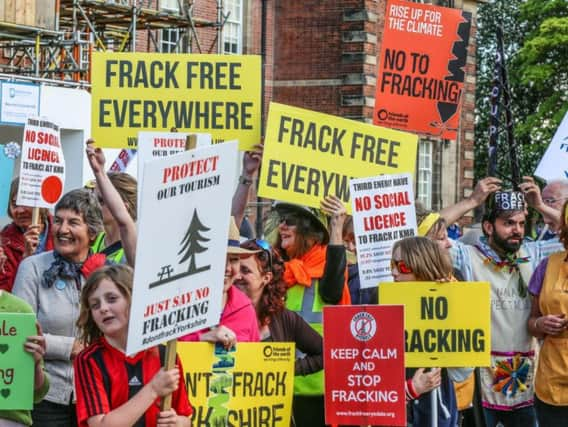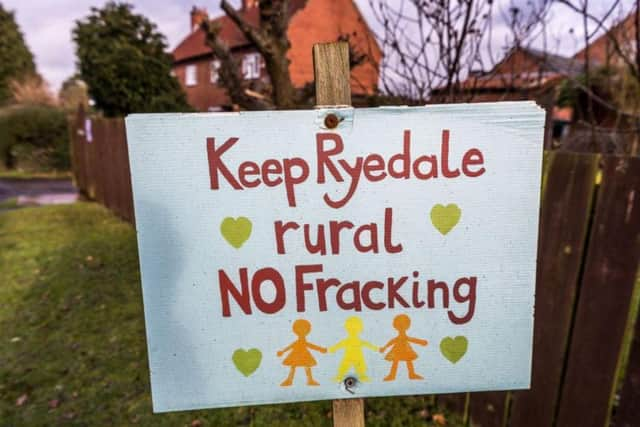Global methane levels 'lifted by rise of fracking'


While the rapid rise in levels of methane – a significant greenhouse gas – has been attributed in recent years to cows, rice fields and other biological sources, new research also points to the effect of fracking.
The research from Cornell University in the USA looks at the “chemical fingerprint” of methane in the atmosphere and concludes that around a third in the past decade has come from exploiting shale gas.
Advertisement
Hide AdAdvertisement
Hide AdThe process of drilling into the earth and directing a high-pressure water mixture at the rock in order to release the gas inside, is carried out widely in the US but is hugely controversial in Britain.


More in news: Why the UK needs fracking for its future: YP LettersFracking fears for Yorkshire village reignited after US firm buys Third EnergyEarlier this year, a company that wanted to frack for shale gas near Kirby Misperton in North Yorkshire sold its onshore business and withdrew testing equipment, after failing to get Government consent.
Methane levels rose steadily in the last decades of the 20th century before levelling off again, but since 2008 they have been rising once more.
If the rise continues in coming decades, it will significantly increase global warming and undercut efforts to meet international targets to curb dangerous climate change under the Paris Agreement, the study warns.
Advertisement
Hide AdAdvertisement
Hide AdIt concludes that methane from fossil fuels has probably exceeded emissions from biological sources in the past decade – with shale gas accounting for more than half of that total.
The study says: “The commercialisation of shale gas and oil in the 21st century has dramatically increased global methane emissions.”
Author, Prof Robert Howarth, said the recent increase in methane was “massive”.
“It’s globally significant. It’s contributed to some of the increase in global warming we’ve seen and shale gas is a major player,” he said.
Advertisement
Hide AdAdvertisement
Hide AdWhile carbon dioxide has a long-term impact in the atmosphere, the climate responds more quickly to changes in methane.
Prof Howarth said: “If we can stop pouring methane into the atmosphere, it will dissipate. It’s the low-hanging fruit to slow global warming.”